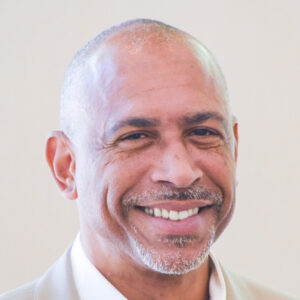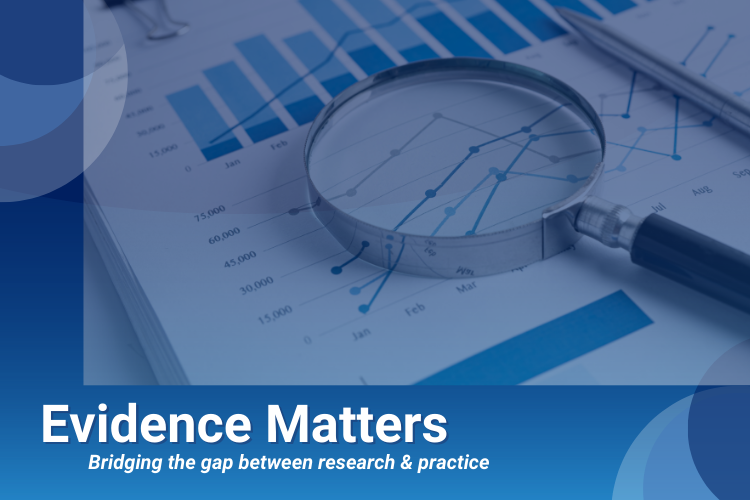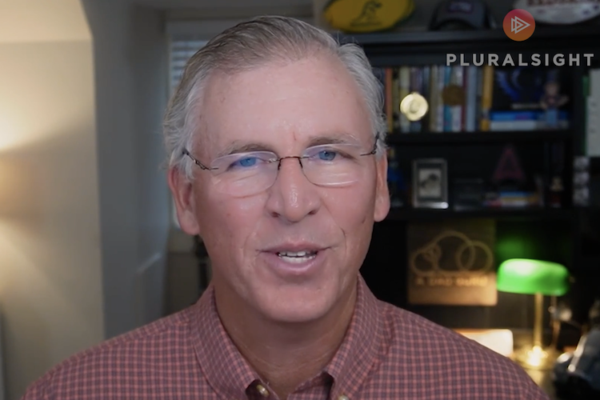At the USC Rossier School of Education, we welcome the opportunity to partner with Chief Learning Officer to bring you a new monthly column, “Evidence Matters,” to help bridge the gap between research and practice. Today, in our debut column, we highlight how evidence can identify good and bad practices, debunk myths and improve performance. Our goal is to distill actionable research for you and emphasize the importance of evidence-based leadership.
Research shows that people are a company’s most important asset. As a leader, your job is to help them succeed. Coordinating a group to achieve common goals is a learning problem, not just a communication or strategy issue. CLOs should focus on orchestrating effective learning to benefit employees, organizations and society. Learning is a universal win.
Consequently, you hold a critical role. Most people work throughout their adult lives, meaning CLOs influence more people for longer periods of time than formal education systems. Despite this profound impact, CLOs often lack recognition, partially due to insufficient evidence supporting your work. This lack of rigor — along with flawed data and biases — hampers organizational performance.
Corporate learning, plagued by myths and uninformed practices, must improve because the stakes are high. Therefore, every CLO must identify and present reliable evidence of their work. Here are some initial frameworks grounded in research to guide you.
Theory matters: While academia is sometimes dismissed as “unrealistic,” theories are indispensable tools. They aren’t “truths” but frameworks to interpret evidence and guide actions. Consider theories of gravity: Newton, Einstein and quantum mechanics each explain gravity under different conditions. Similarly, organizational theories help CLOs navigate complex scenarios. Use theories to contextualize evidence and adapt strategies as needed.
Theories of action: A theory of action, or theory of change, starts with the end in mind. Mapping steps to achieve desired outcomes fosters buy-in and ensures clarity. If results fall short, revisit and refine the theory to address overlooked factors. This iterative process improves alignment and effectiveness.
Being evidence-based isn’t sufficient; wield your approach with a moral compass.
Beyond either/or thinking: CLOs often face pressure to focus solely on the bottom line, leading some to neglect their core responsibility: fostering learning. Embrace your role as the organization’s “people whisperer,” leveraging learning to drive performance. Research, including work by Nobel Laureate John Nash, shows win-win solutions are possible. Design initiatives that benefit employees, companies and society, aligning with emerging ESG trends in Europe.
Organizational over individual focus: Effective learning isn’t about individuals alone; it’s about the collective. Avoid designing programs solely for personal development. Instead, focus on organizational performance. Think of a basketball team: Teaching individual skills without team dynamics undermines success. Build systems that prioritize collective outcomes.
Inclusivity is evidence-based: Despite resistance to diversity and inclusion efforts, evidence shows that inclusive, multimodal approaches enhance performance. Digital Promise’s research in K-12 settings underscores this point. Applying similar principles in corporate learning can yield significant benefits.
Evidence collection and analysis: Gathering evidence isn’t enough; you must critically evaluate it. Beware of confirmation bias and flawed methodologies. For example, Gallup survey data on the Earth’s age could yield a statistically valid but scientifically inaccurate result. Similarly, misinterpreting Kirkpatrick’s levels of evaluation as ordinal rather than categorical leads to flawed assessments. Use diverse evidence sources and adhere to methodological rules to ensure accuracy.
Finally, being evidence-based isn’t sufficient; wield your approach with a moral compass. Align your values with your organization’s, or consider seeking a better fit. You shape your organization’s culture and impact all your employees’ lives. Remember, some 50 percent of working Americans are functionally illiterate. Treating employees with respect and providing meaningful work empowers marginalized individuals and enriches society and, of course, your organization’s bottom line.
We look forward to ongoing dialogue. Together, we can question, refine and advance the profession. As we say at USC, fight on!
















